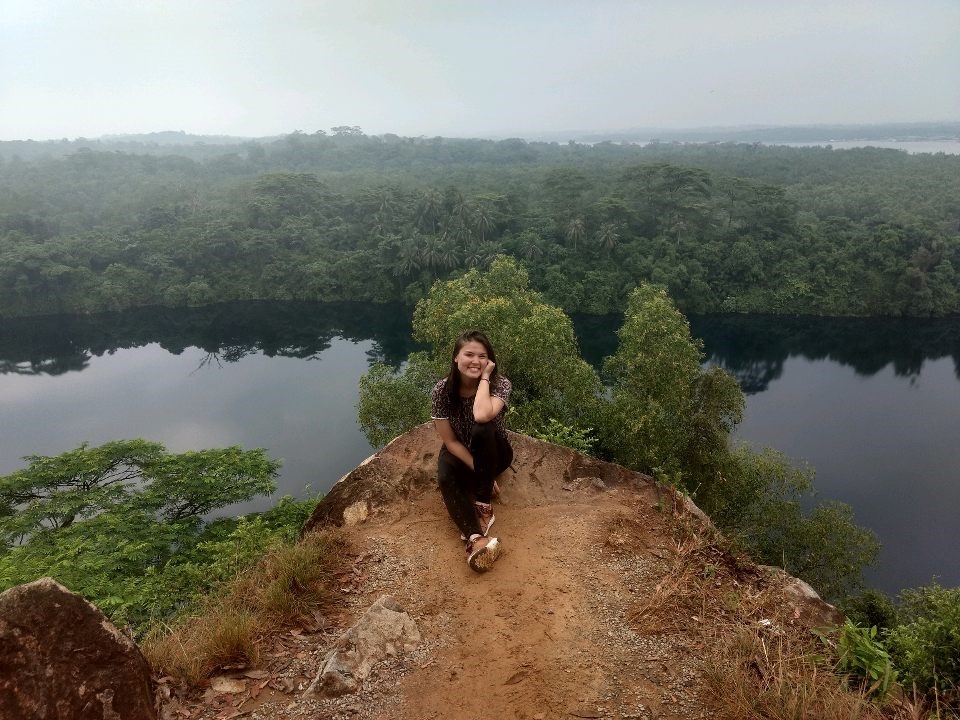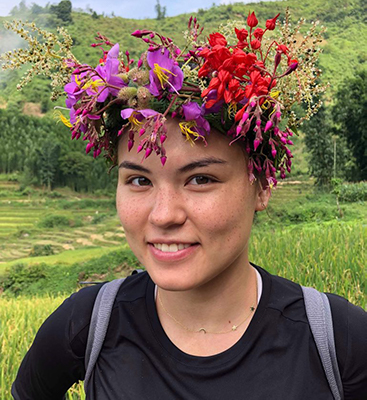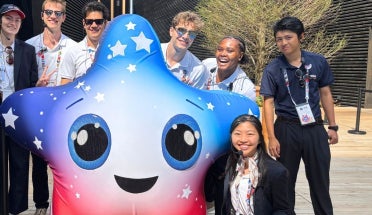
Biology Student Hopes to Use Research Abroad to Advance Wildlife Conservation
- Sep 20, 2019
- Education Abroad
Kelsey Moreland had always known what she wanted to do. In sixth grade, she was first introduced to the world of genetics and immediately fell in love with it. She started taking high school biology courses in eighth grade and began pursuing her dream of becoming a geneticist. Over the past year, she has taken her passion for genetics to Singapore to study avian DNA and advance global wildlife conservation efforts.
As a biology major at UT Austin, Moreland is interested in conservation genetics and helping policymakers make better-informed decisions regarding the environment, which she has channeled into her research. When she decided to spend a year on an exchange program in Singapore, she knew she could not miss the opportunity to conduct research abroad.
“At UT, research was kind of like the center of my day,” she described. “I would go to my lab, go to class and then return to my lab and it was just really, really nice to be doing something tangible. I knew that was an experience that I wanted to try doing abroad as well.”
The National University of Singapore was the perfect choice for Moreland. She began her studies in Singapore last August, participating in the undergraduate research opportunity program in science (UROPS). The program was the reason why she chose Singapore.

She found out about the program through Texas Global. After searching for different opportunities in hands-on lab work, she came across the Avian Evolution Lab, where she joined a research team studying avian DNA.
Moreland’s research centered on common redshank birds and their migration patterns. Redshanks, she said, are common across the Eurasian landmass and migrate from Iceland through Russia, Africa, the Middle East and finally to Singapore. She is sequencing the DNA of 200 individuals to analyze trends in the population.
Moreland said she is excited to see the impact that her research can have.
"Redshanks are a widespread species, but they’re not a very well-studied species,” she explained. “What's interesting about this bird is there's so many of them, new knowledge about it has the ability to impact a lot of parts of the world and the understanding of migration in general.”
Moreland learned many valuable skills from participating in research in an international setting. She also built priceless connections with students who share her passion for research.
“At UT, a lot of people who are studying life science want to go into being a doctor or a dentist, and it's kind of hard for me to find other people who want to go into research," she explained. “The people I’ve met here are actually the start of really good connections for me to have and keep in contact with through our professional careers.”
She documented her experiences doing research abroad on the Education Abroad Blog as part of the Global Ambassador Program, allowing her to not only share her experiences in Singapore but also help other UT students interested in studying abroad.
One piece of advice Moreland shared for students who are interested in studying abroad was to be open-minded about the experiences you will have, which may not always be easy. Being in Singapore, she learned to acknowledge that studying abroad comes with challenges, but overcoming them comes with a great reward.

"I felt a lot of pressure to be super excited,” Moreland said. “When people would ask me ‘so how is Singapore, how's study abroad?’ there's no good answer for that question. You don't want to admit that it's hard to make friends. And you don't want to be negative whenever you're on this incredible journey.”
Moreland says those negative feelings only made her time more valuable, opening up her view of the world and teaching her to build and maintain valuable connections within a different cultural context.
“Part of the growing experience is to have to make new friends and have to maybe deal with language barriers,” she said. “Being abroad, you're able to adapt more quickly to different types of people because you don't have this preconceived notion of what to expect from them anymore. So you actually get rid of any of those ideas that you had.”
Read more about her experiences living in Singapore in her blog posts, or plan your own education abroad.



